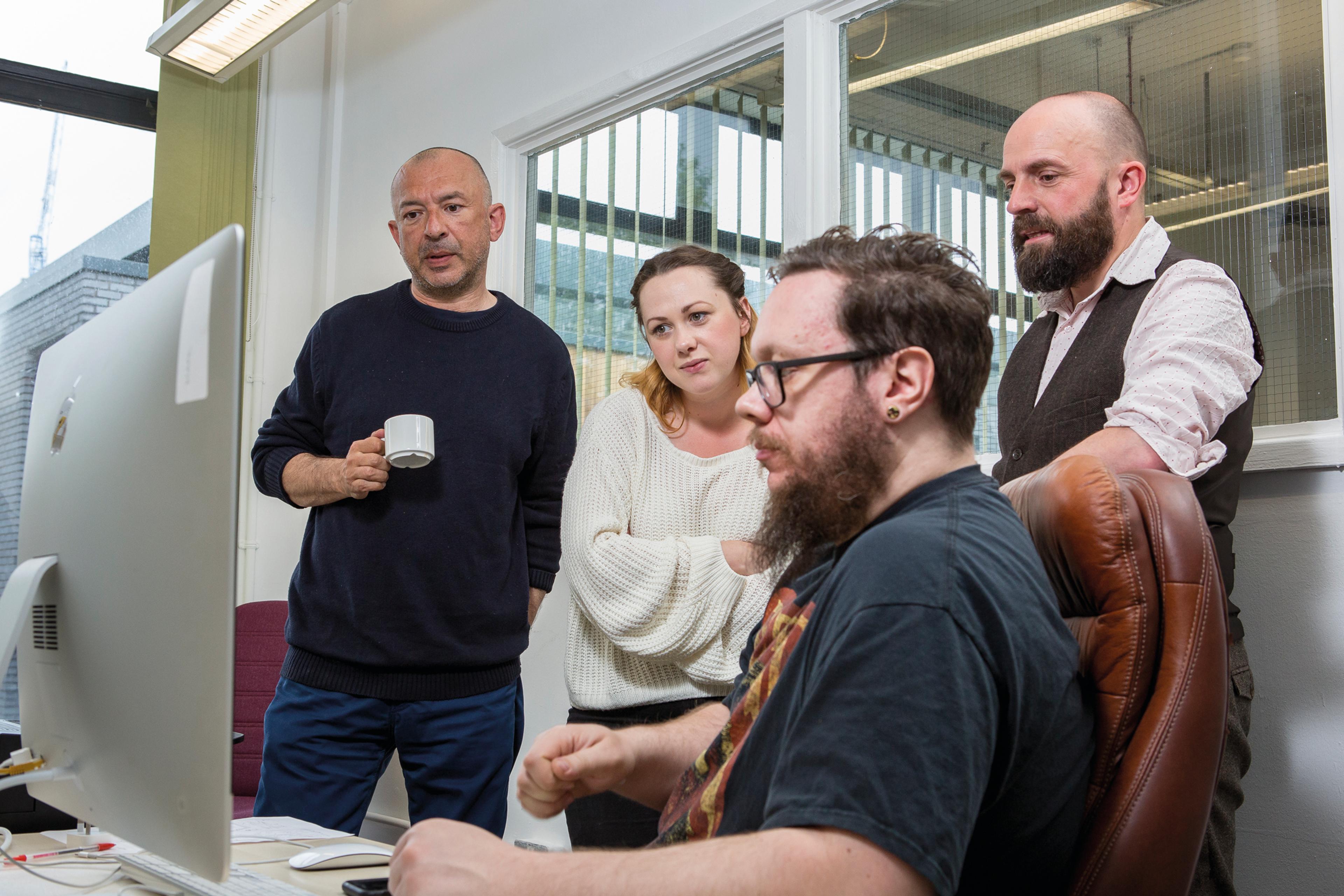Surgery on the street
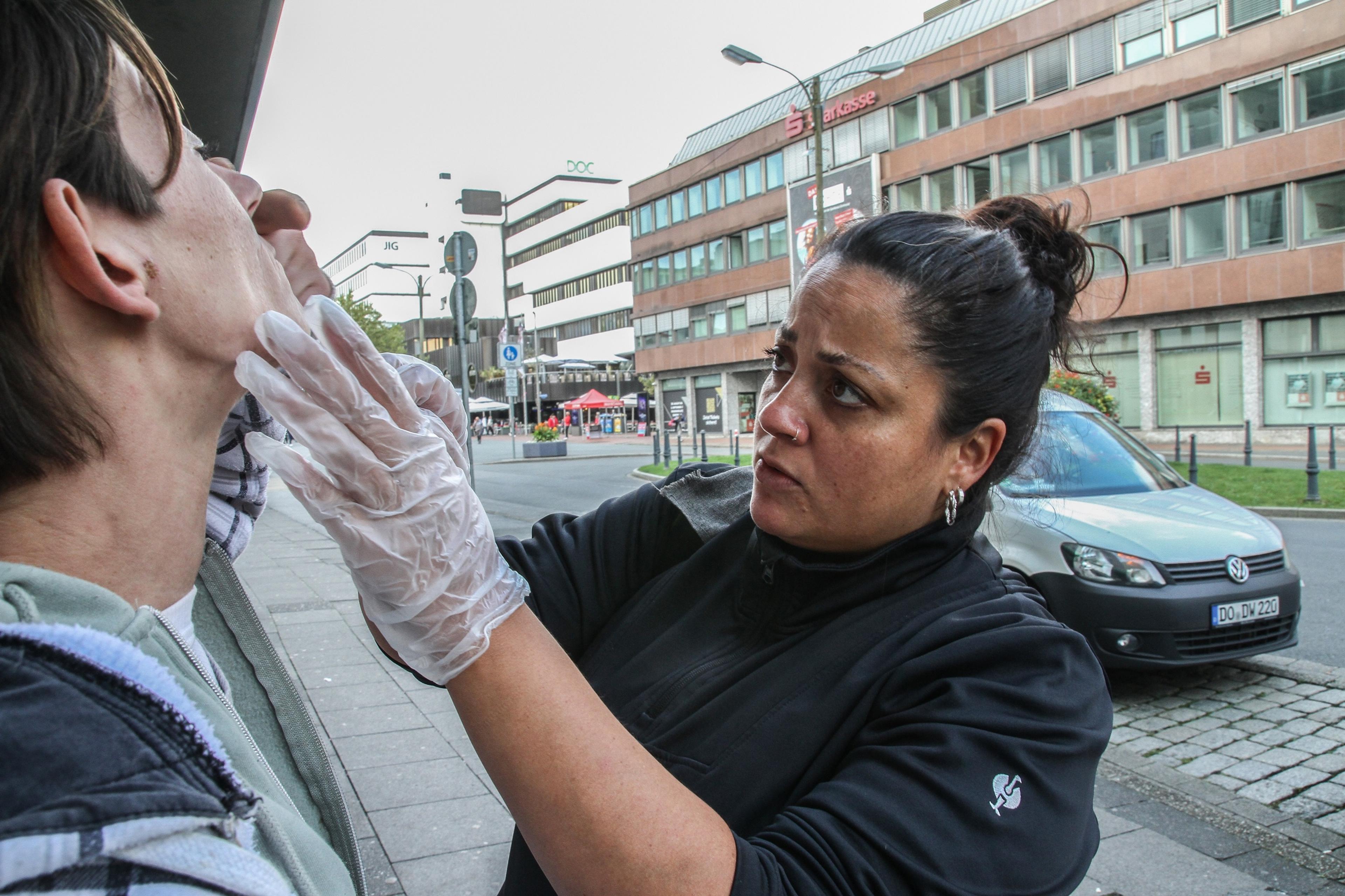
Dirk Planert
Dirk Planert
- Street paper news
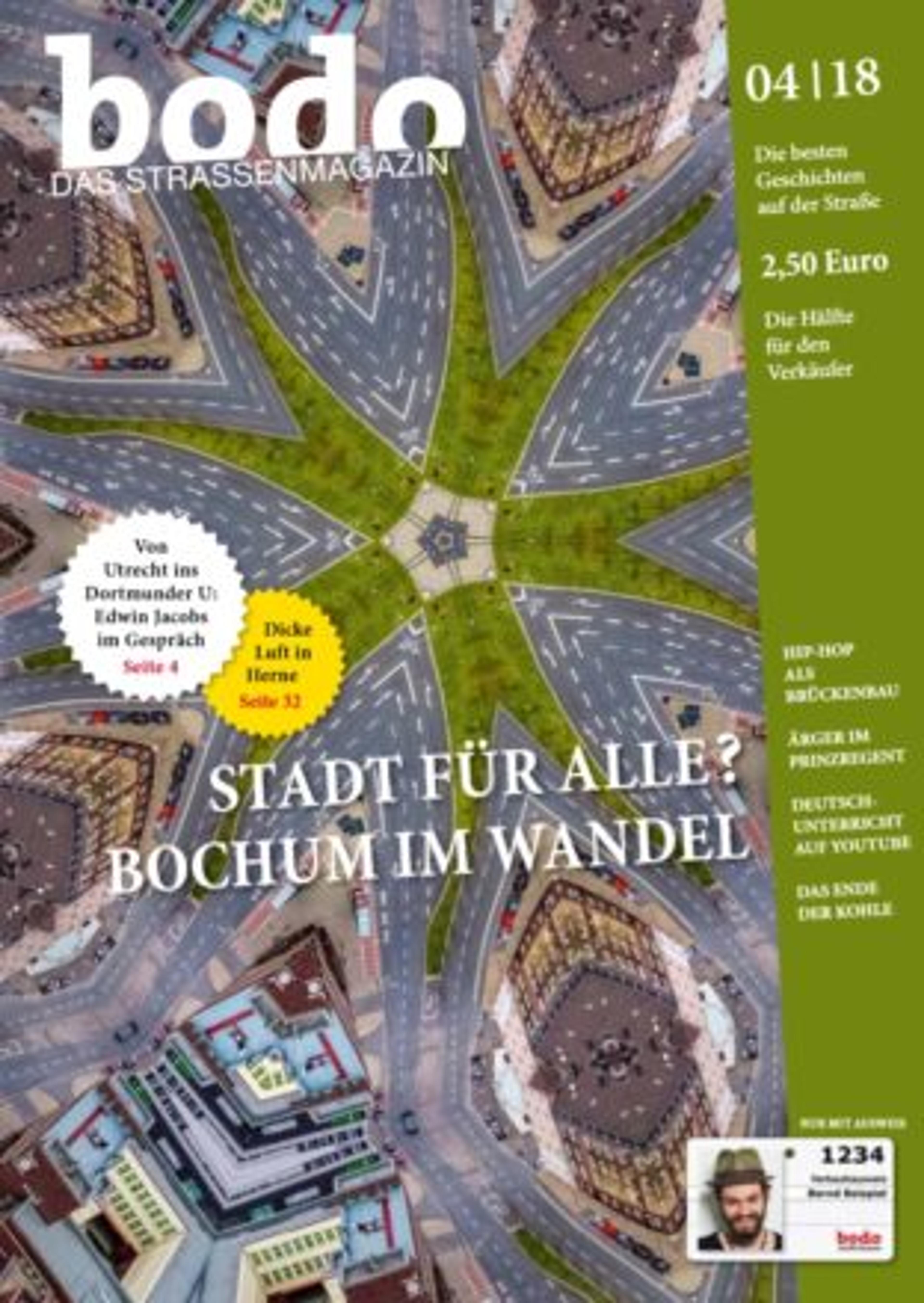
The article below was originally published by Bodo.
A man with a cowboy hat and sunglasses sits in a wheelchair on Ostenhellweg in Dortmund, Germany. He has a dirty bandage on his left foot. There is a coffee cup on the floor in front of him; every now and then, a passerby will toss a Euro into it. Almost nobody pays him any mind. Suddenly, he hears a friendly voice: “Hello, Jojo, how are you today?” The man beams, clearly pleased to see the two women coming towards him with their cargo bike.
The man is Jürgen, 65 and homeless. The two women are nurse Maria Schomburg, 35, and social worker Leonie Furgol, 27. They work at Wichernhaus, the Diakonie’s homelessness aid organisation based in the north of the city. Their shift started at 8 this morning. Marie packed bandages, ointments and medication; Leonie packed several parcels of small water bottles, juice cartons, underwear and t-shirts. Everything they have is loaded into a cargo bike before they head out into the city.
Marie grabs some scissors, loosens the bandage on Jojo’s foot, and examines the wound. “That already looks much better, but we have to keep going, Jojo.” Several toes are missing. Jojo had blocked arteries. The toes had to be amputated and the wound is now causing him problems. What would happen if this medical assistance outreach programme didn’t exist? Without thinking, Jojo says: “Then I’d have big problems; my leg would definitely have been amputated by now. Or both!”
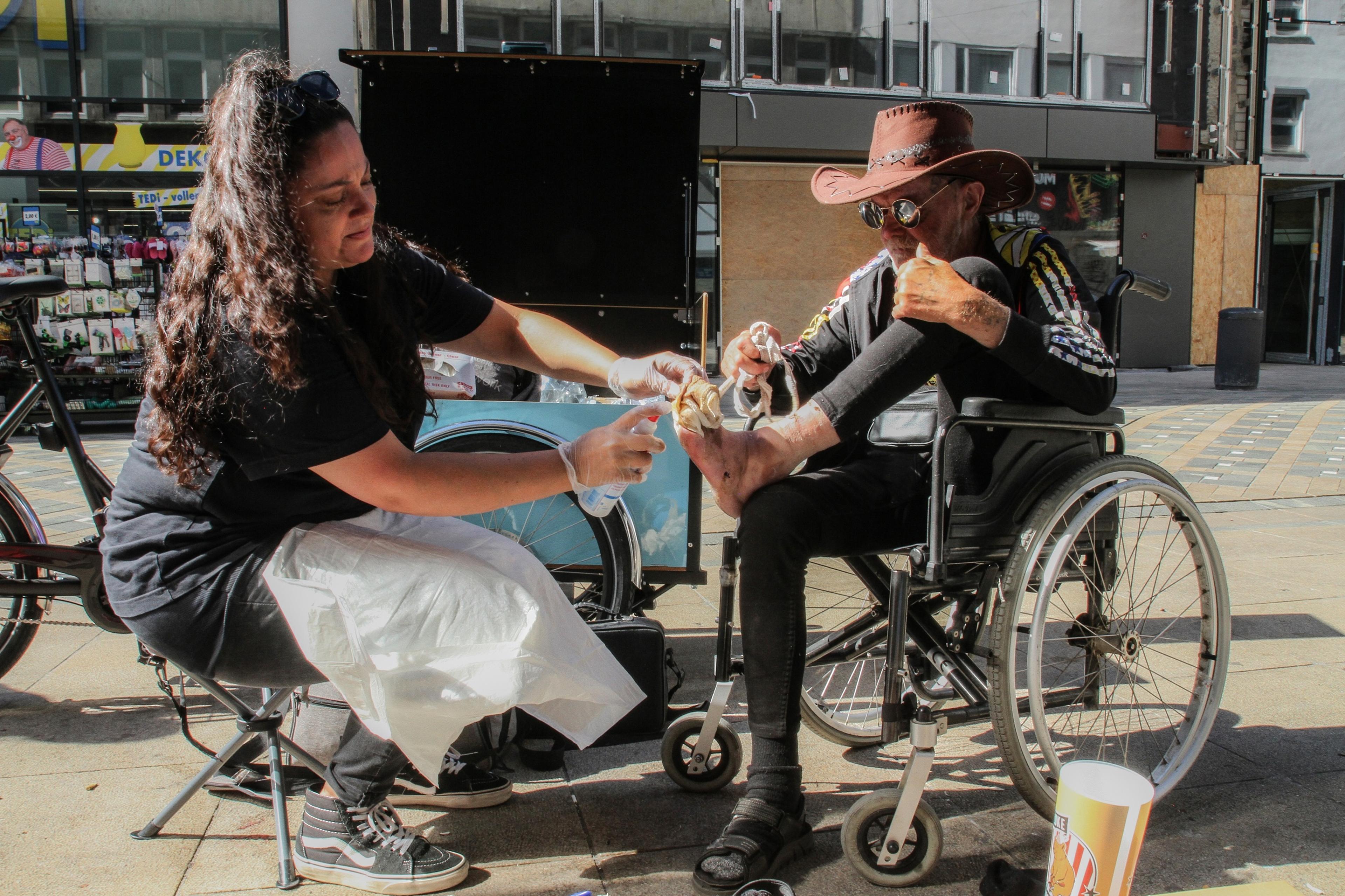
Photos by Dirk Planert
“Don’t forget the tablets!”
There is a clinic in Wichernhaus that opens four days per week. The patients are all people experiencing homelessness without health insurance. Every Wednesday, a doctor comes from the local health authority. Otherwise, three nurses take turns caring for patients. Marie is the only one who works out on the streets; her colleagues see their patients at Wichernhaus. Together, they have treated 355 patients in the past year and carried out 1,553 medical consultations and procedures. 25 percent of patients are female, and most are between 30 and 60 years old.
“Some don’t want to hear about medical care, the others about social care. We complement each other well,” says Marie. The medical assistance outreach programme also makes it possible to reach those who cannot make it to Wichernhaus. “Many are scared that their things will be stolen at the shelter; others simply can’t make it.”
One of them is Jojo. He points a finger at his wheelchair: “Have you ever used something like that? Do you know how difficult it is? Stopping every three metres when you don’t have any strength left in your arms. I can’t do it.” Marie had put Jojo’s tablets for a week in a pillbox in the morning and brought them with her. He has high blood pressure and needs to take them daily. She gives him the tablets and a bottle of water, then both women say goodbye: “Don’t forget the tablets! Be careful! See you soon!” Jojo waves after them and smiles as if he had been visited at home by welcome friends.
Marie has been doing this job since 2021. Before, she worked in a hospital, then in intensive and respiratory care. While looking for a new role, she stumbled across Wichernhaus and the Diakonie organisation. “It’s not like the assembly-line work in a hospital here. It’s more fulfilling. Here I know that what we don’t do, no one will.”
She then recounts the case of a former businessman who is now a patient. The man had worked for 45 years and was insured privately. Now, he can no longer afford the private health insurance: “He has a bad injury and the hospital will only treat him when it becomes an emergency.” Marie’s patients experience illness like everyone else; however, living on the streets often leads to acute and chronic wounds. Marie can treat these, but if someone requires antibiotics, for example, she must first consult the doctor.
Take Ben: he sits on a wall in the city centre and twirls his beard. There is an empty coffee cup in front of him. He had several open wounds on his hips and legs until Marie patched him up. He urgently needed antibiotics, most of which needed to be taken over the course of several days, as well as single-dose antibiotics to prevent the risk of blood poisoning, which can be fatal. Now, his wounds have healed well.
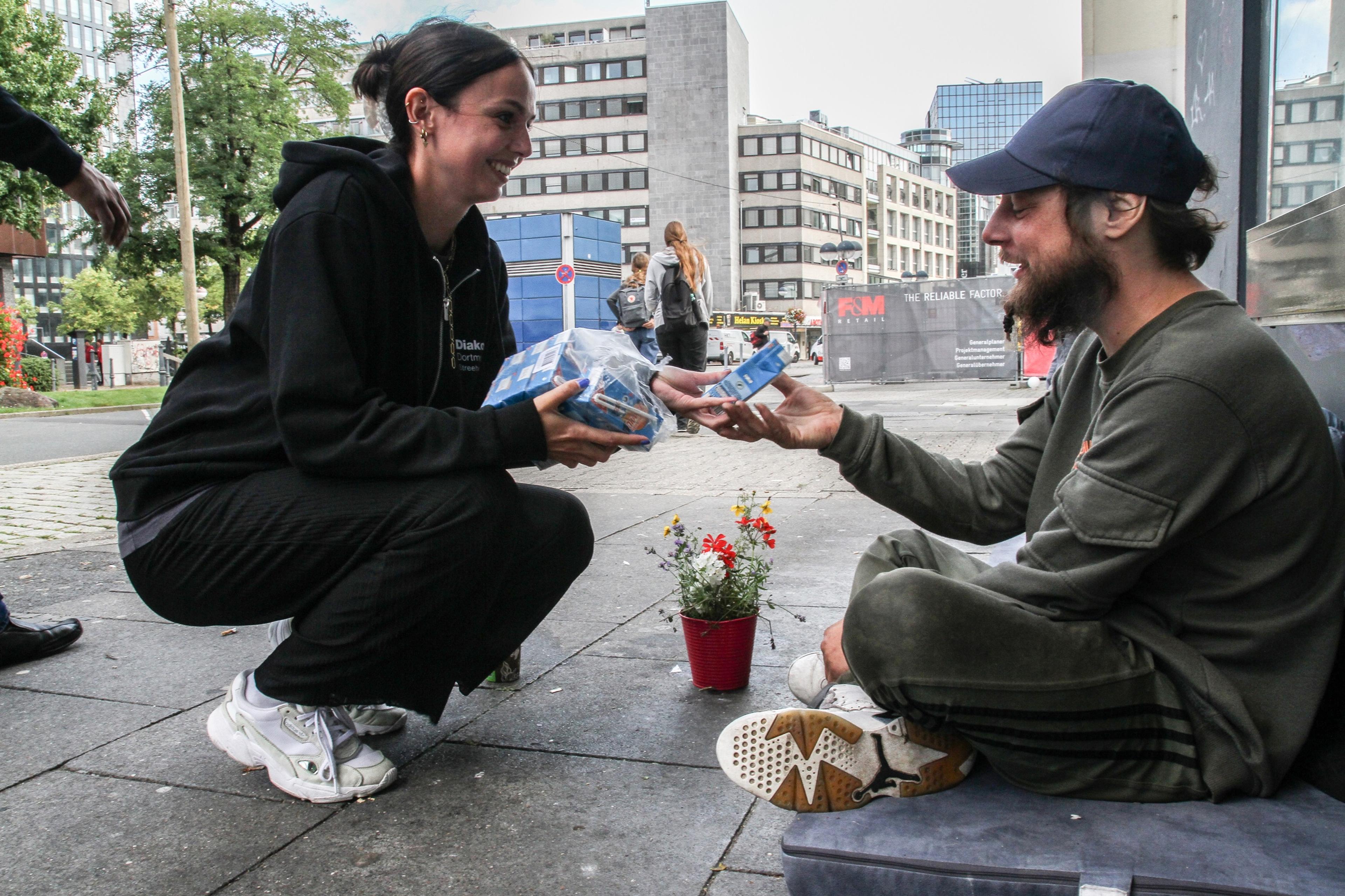
Photos by Dirk Planert
“Hello, we don’t know each other yet”
In the meantime, Marie is required for appointments at the outpatient clinic, the doctor for a diagnosis or prescription. There is an drop-in surgery every Wednesday. There are no appointments: “We work until everyone is seen to,” says Marie. You never know what to expect from the streets: “There was a man very recently who fell while heavily inebriated and suffered a fracture. He was lying in his faeces for a week. People walked past him and no one helped. We called an ambulance. He was treated at the hospital and back on the streets the same day.”
Marie and Leonie continue to push the cargo bike across Hansaplatz and along Westenhellweg. They stop again and again to ask familiar faces if everything is okay. A woman has a small lesion on her nose. Marie checks for infection as people walk by. Many take a glance and then quickly look away.
A man whose age is difficult to estimate sits in Friedensplatz. Leonie approaches him: “Hello, we don’t know each other yet. I’m Leonie, this is Marie. Do you need help? Are you okay?” Then she kneels to speak to the man at eye level. She does this every time. It’s Marie’s turn when someone needs medical care. Leonie breaks the ice: “Most patrons see me every day, even outside of medical help. Even when someone turns me away, I offer to get in touch again the next day. That has often helped.”
In five hours, more than 30 people received medical care, water and new underwear or t-shirts. A handful were referred to the Wichernhaus clinic. Marie and Leonie will do their round again in two days. Then it’s off to the train station: “There’s a lot to do.”
Courtesy of bodo / INSP.ngo
Translated from German via Translators Without Borders
You may also be interested in...
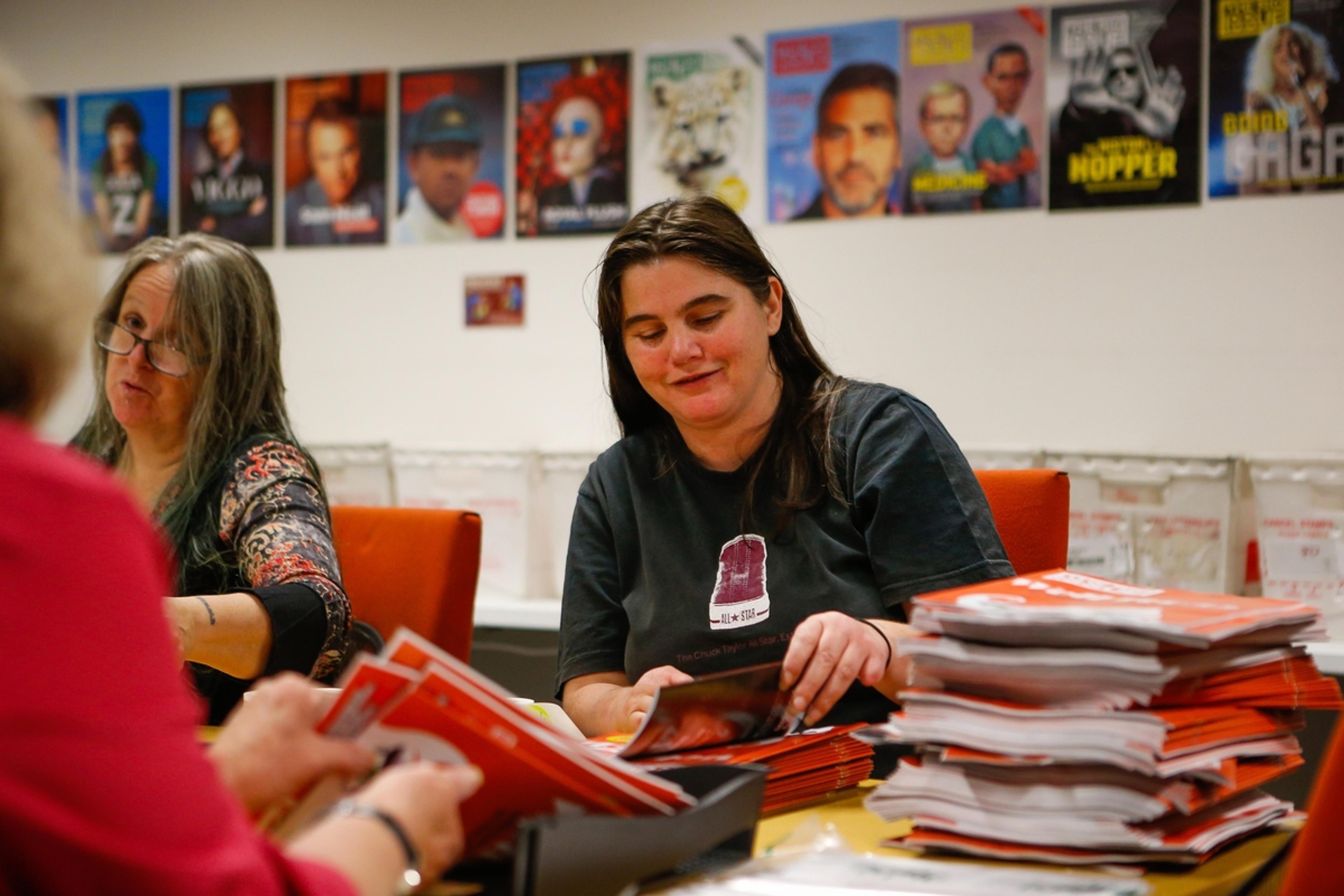
Q&A: How The Big Issue Australia is empowering women through enterprise
Read more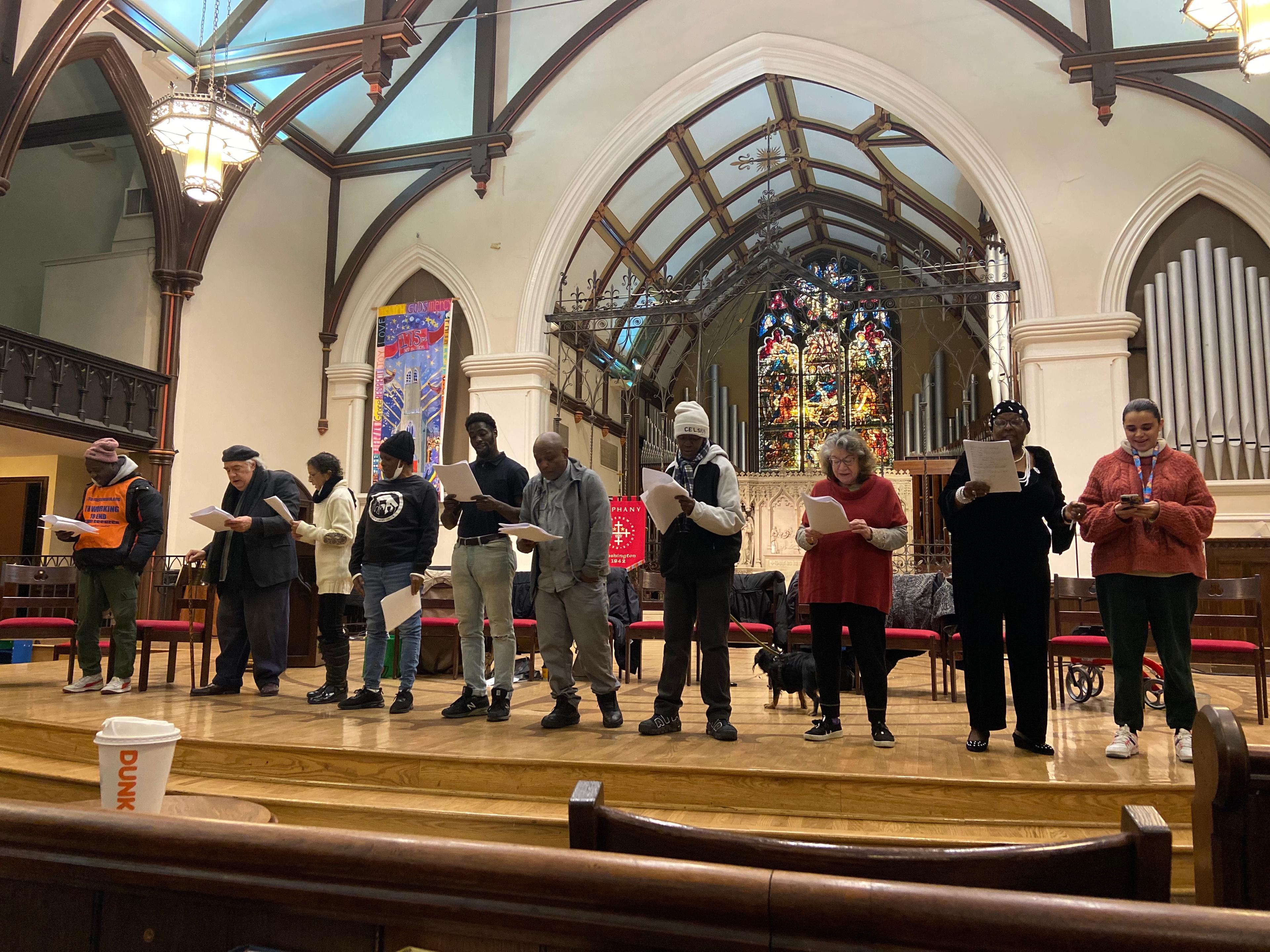
Street Sense Media vendors stage play exploring solutions to homelessness
Read more